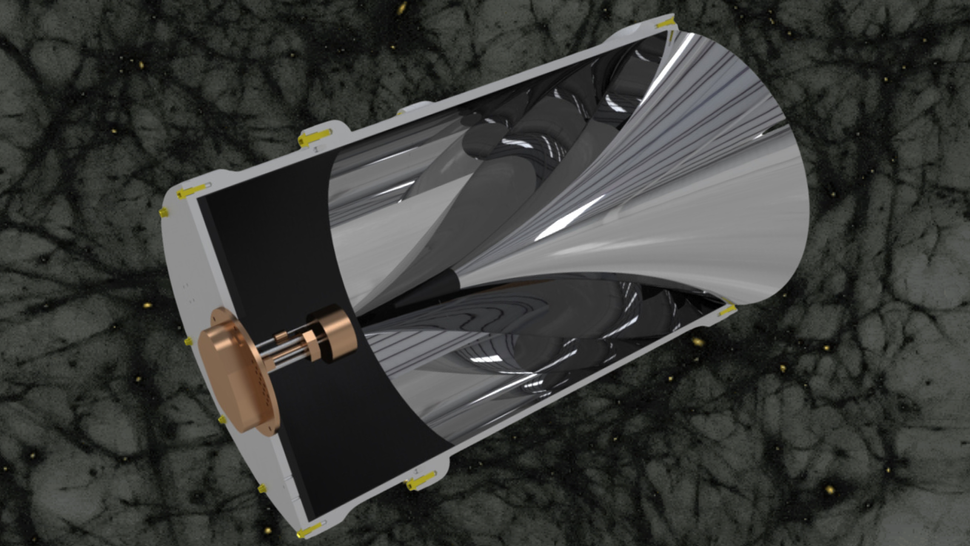Ambitious new dark matter-hunting experiment delivers 1st results
By Robert Lea published 13 ago
"If you think about it like a radio, the search for dark matter is like tuning the dial to search for one particular radio station. Our method is like doing a scan of 100,000 radio stations."

A diagram of the BREAD experiment against a simulation of dark matter. (Image credit: BREAD Collaboration /Ralf Kaehler/SLAC National Accelerator Laboratory)
A new experiment designed to search the cosmos for its most mysterious "stuff," dark matter, has delivered its first results.
While the Broadband Reflector Experiment for Axion Detection (BREAD) developed by the University of Chicago and the U.S. Department of Energy's Fermilab hasn't turned up dark matter particles just yet, the new results place a tighter constraint on the type of characteristics scientists can expect such particles to have. The BREAD experiment itself also served up an exciting new recipe that could be used in the hunt for dark matter — a relatively inexpensive one that doesn't take up a vast amount of space.
BREAD takes a "broadband" approach to search for hypothetical dark matter particles called "axions" and associated "dark photons" across a larger set of possibilities than other experiments, albeit with slightly less precision.
"If you think about it like a radio, the search for dark matter is like tuning the dial to search for one particular radio station, except there are a million frequencies to check through," University of Chicago scientist and BREAD project co-leader David Miller said in a statement. "Our method is like doing a scan of 100,000 radio stations, rather than a few very thoroughly."
A small experiment to tackle a big problem
Dark matter represents a huge problem for scientists because, despite the fact it makes up around 85% of the matter in the universe and its influence prevents galaxies from flying apart as they spin, we have little idea what it is made of.
More:
https://www.space.com/bread-experiment-first-results-dark-matter-search
